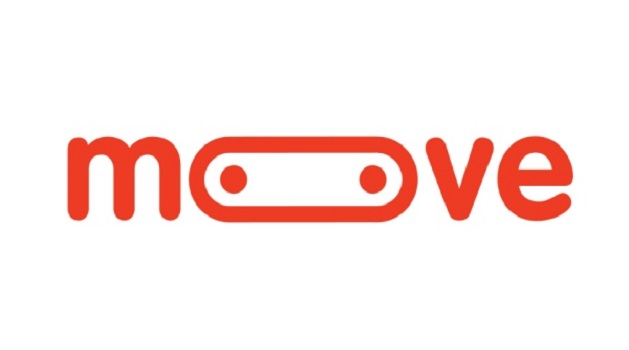General News
Check Point Ltd Takes Information Security to Next Level

There is no gainsaying that present day structure and pace of corporate life have changed just as the saturation of traditional markets is taking companies to more risky places; the shift towards a knowledge economy is eroding the importance of ‘place’ in the business world; new business practices such as offshoring challenge companies to manage at a distance; and new forms of accountability, such as corporate governance and corporate social responsibility, put added pressure on companies to match their words with deeds, wherever they are operating.
Rachel Briggs and Charlie Edwards writing on, ‘The Business of Resilience Corporate security for the 21st century’, identified that, “security risks have become more complex, too. Many of the threats, such as terrorism, organised crime and information security, are asymmetric and networked, making them more difficult to manage.
“There is also greater appreciation of the interdependence between a company’s risk portfolio and the way it does business: certain types of behaviour can enhance or undermine an organisation’s ‘license to operate’, and in some cases this can generate risks that would not otherwise exist”.
Therefore, it is undisputable that the level of security silhouette in the corporate world today has increased tremendously than five years ago.
“Companies are looking for new ways to manage these risks and the portfolio of the security department has widened to include shared responsibility for things such as reputation, corporate governance and regulation, corporate social responsibility and information assurance,” Wikipedia identified.
Paucity of the problems spurred the minds of intellectuals in Check Point Software Technologies Limited who came up with check point endpoint security. Speaking at a stakeholders’ forum in Lagos recently, Shmuel Agi, head of Sale, Middle East and Africa, Check Point limited highlighted the challenges companies are facing thus, “As network security improves, criminals are focusing on enterprise endpoints to steal valuable information. Most of corporate laptops and PCs now store proprietary data on their hard drives and many are used regularly outside of the secured environment”.
ICT Brands also gathered how Check Point intend to identify with companies that face hard times when such valuable data are lost, stolen or compromised by Web-based threats, such as drive-by downloads and phishing attacks where laptops can be mined for data or used to penetrate corporate networks and database.
Check Point has is fanning up the trail with her 3D security to defend clients against full spectrum of endpoint attack. How? Check Point recently rolled out her 3D Security vision. It is a redefined 3-dimensional business process that combines policies, people and enforcement for stronger protection across all layers of security—including network, data and endpoints.
“To achieve the level of protection needed in the 21st century, security needs to grow from a collection of disparate technologies to an effective business process. With 3D Security, organizations can now implement a blueprint for security that goes beyond technology to ensure the integrity of all information security.
“Check Point 3D Security enables organizations to redefine security by integrating the 3 following dimensions into a business process: people, policies and enforcement,” said Justice Anyai, security Engineer at Check point.
By policies, the solution supports business needs and transforms security into a business process; it promises security that involves people in policy definition, education and incident remediation; enforce, consolidate and control all layers of security- network, data, application, content and user.
Speaking further, Anyai added that security starts with a widely understood and well-defined policy, closely aligned to business needs and strategies.
Yet, many organizations today do not have such a policy; instead companies rely on a collection of system-level checks and disparate technologies. This can reduce the level of organizational security while increasing the cost of compliance and corporate governance reporting.
“Today’s corporations can now develop a blueprint that supports their corporate and governance needs, while strengthening their information security.
Check Point R75 provides a strong foundation for 3D security in a single, unified solution that promotes the definition of a security policy and process that’s aligned to user and business needs”.
How imperative it is, hence security in this context helps companies invloved to take risks rather than prevent them and should therefore be at the forefront of new business development.
Of course, experts noted six characteristics of alignment between security and the business to include, -The principal role of the security department is to convince colleagues across the business to deliver security through their everyday actions and decisions – not try to do security to or for the company.
-The security department is in the business of change management rather than enforcement and works through trusted social networks of influence.
-Security is there to help the company to take risks rather than prevent them and should therefore be at the forefront of new business development.
-Security constantly responds to new business concerns and, as such, the portfolio of responsibilities and their relative importance will change over time.
Security departments should never stand still or become fixed entities. In many companies today, its role is more concerned with overall corporate resilience than ‘traditional’ security.
-Security is both a strategic and operational activity, and departments must distinguish between these two layers.
-The power and legitimacy of the security department does not come from its expert knowledge, but from its business acumen, people skills, management’s ability and communication expertise.
No wonder Check Point limited dossier that, “users of IT systems are an integral part of the security process. It is often users who make mistakes that result in malware infections and information leakage.
While security should be as seamless and transparent to users as possible, the most effective security is one that engages and educates users on security policy enforcement—as well as their expected behavior when accessing corporate networks and data.
Thus, Check Point R75 plan brings a differentiated, modern approach to security by providing a combination of robust security technology and user awareness.
Check Point’s unique UserCheck technology engages employees in the remediation of potential security incidents and enables IT administrators to tailor policies based on level of risk and user needs.
No just that, the foresight of the software developers could be deduced from the ability of the solution to help companies take proactive steps in enforcing policy than reporting on violations, because network security is about gaining better control over all layers of protection, especially in a world of too many disparate point products, organizations often lose rather than gain control over their security.
With the hype about the tenacity and viability of the solution ICT Brands believes time has come for companies to achieve a higher level of visibility and control by consolidating their security infrastructure and using systems that prevent security incidents rather than just detecting them, particularly now Check Point R75 enables customers to extend the firewall into a multi-function and multi-dimensional gateway that consolidates protection into a single, unified solution.
General News
Enugu Air Commences Operations Today

Enugu State-owned commercial airline, Enugu Air, is set to officially launch its operations today Monday, July 7, 2025. The launch ceremony will take place at the Akanu Ibiam International Airport, with the Minister of Aviation and Aerospace Development, Festus Keyamo, expected to attend alongside other dignitaries, according to a statement from the airline.

Dr Obi Ozor, Commissioner for Transportation, Enugu State, said Enugu Air is a key component of Governor Peter Mbah’s vision for a modern, integrated transportation system, aimed at positioning Enugu as a major aviation hub in Nigeria.
The airline will begin operations with a fleet of three Embraer jets, from the E170 and E190 series, chosen for their performance, passenger comfort, and suitability for regional routes.
The airline’s inaugural routes will form a strategic triangular operation connecting Enugu, Abuja, and Lagos, with plans to expand services to Port Harcourt, Owerri, Benin, Kano, and other key cities across Nigeria and beyond.
Ozor said, “With a strong foundation built on innovation and sustainability, Enugu Air is poised to transform regional air travel, boost state pride, and raise Enugu’s profile nationally and globally.”
The launch of Enugu Air is expected to have a significant impact on the aviation industry in Nigeria, providing more options for air travel and promoting economic development in the region.
With its modern fleet and strategic routes, Enugu Air is set to revolutionize air travel in Nigeria and establish Enugu as a major player in the country’s aviation sector.
General News
Cybervergent Selected as World Economic Forum’s 2025 Technology Pioneer Company

In affirmation of its global standing, Cybervergent, a Pan-African technology company that leverages artificial intelligence to transform how organisations manage risk, governance, privacy, and cybersecurity, has been selected as one of the World Economic Forum’s (WEF) Technology Pioneers for 2025—a global cohort spotlighting companies transforming industries through breakthrough technologies and responsible innovation.

The WEF, an international organisation committed to improving the state of the world through public-private collaboration, brings together global leaders to shape economic, technological, and societal agendas. Cybervergent now joins this global community.
The company is recognized for its innovative approach to building digital trust, reimagining how organisations manage cybersecurity, risk, privacy and governance.
Commenting on the company’s milestone, Adetokunbo Omotosho, CEO of Cybervergent, said, “I am honoured that Cybervergent has been named a Technology Pioneer by the World Economic Forum. This is more than an accolade — it’s a validation of our commitment to redefining cybersecurity, privacy, and risk management to build true digital trust.
“What makes this recognition even more meaningful is the fact that Cybervergent demonstrates innovation in AI and infrastructure can emerge from any region, challenging conventional perceptions.”
Some past recipients of the Technology Pioneer recognition, including Google, Spotify, and Airbnb have gone on to fundamentally reshape global industries.
As a member of the 2025 Technology Pioneers community, Cybervergent will be contributing to discussions shaping cybersecurity, AI, and cyber resilience across industries and the global digital economy.
General News
Moove Plans to Raise $1.2Bn Debt Round for US Autonomous Vehicle Expansion

Moove, an African mobility fintech startup, is on a quest to secure a $1.2 billion debt financing round to support the rollout of a fleet of autonomous vehicles.

This is in partnership with Alphabet Inc.’s Waymo in the United States, according to a Bloomberg report citing sources familiar with the matter.
The startup has since attracted backing, including from Uber Technologies Inc., and entered a strategic partnership with Waymo in December 2024 to provide financing for self-driving cars.
Ladi Delano, co-founder of Moove, noted that the company has a solid financial track record.
“Moove has built strong relationships with some of the world’s leading lenders. We have also fully repaid our first-ever debt facilities, which signals our maturity and marks a key milestone that demonstrates the strength of our platform as we enter the next phase of global autonomous-vehicle infrastructure deployment,” he said.
The round is reportedly oversubscribed, with strong participation from private credit firms and banks.
Waymo has also not made any official statement regarding the funding round. While final details are expected to be concluded in the coming weeks, the deal will mark a significant milestone for the firm as it ramps up its global ambitions.
Founded in 2020 by Nigerian entrepreneurs, Ladi Delano and Jide Odunsi, Moove began by providing vehicle financing for ride-hailing drivers in Africa’s largest cities.

 E-Financial2 days ago
E-Financial2 days agoCourt Affirms NIBSS Authority to Manage BVN

 Telecom2 days ago
Telecom2 days agoMTN, 9mobile Commence Ground-breaking National Infrastructure Partnership

 E-Financial2 days ago
E-Financial2 days agoNigerian Banks End Years of Embargo, Resume Intl Transactions on Naira Cards

 General News2 days ago
General News2 days agoCybervergent Selected as World Economic Forum’s 2025 Technology Pioneer Company

 E-Business2 days ago
E-Business2 days agoNIMC Says NIN Services Back Online

 Telecom2 days ago
Telecom2 days agoKarl Toriola Champions Digital Education for Employability @Sigma Club Lecture

 E-Business2 days ago
E-Business2 days agoReport Reveals African Organizations Dangerously Overestimating Cyber defences

 E-Financial2 days ago
E-Financial2 days agoFlutterwave Secures 20 more US Money Transmitter Licences



















